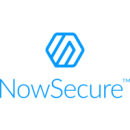Change is the tech industry’s defining characteristic, so staying ahead of emerging trends is critical for any company looking to thrive. But which technology trends matter, exactly, depends a lot on the kinds of problems your tech seeks to solve.
To learn more about what to look out for as we head into 2018, we spoke with leaders at six local companies pushing the envelope in industries ranging from sports analytics to payments and mobile security.

A leading provider of sports analytics, STATS works with broadcasters and information providers like ESPN and Google, as well as with FIFA and hundreds of sports leagues across the world. Patrick Lucey, who serves as the company’s director of data science, said the most important trend in his industry is emerging technologies that make it possible to capture more quantitative data from video. In his view, STATS is perfectly positioned to make good use of that technology.
What is the most important data analytics trend heading into 2018?
One of the most exciting tech trends we are seeing is the ability to digitize any type of video data. To date, most video processing relies on in-venue hardware systems. With the improvements that have been made in computer vision, so much of this work can now be automated for any type of video. Raw video contains so much information, so I'm sure we will see new and exciting applications come out of this space — hopefully from us!
How are you working to address them?
We are leveraging the power of deep learning to do more with our data. Deep learning allows us to learn feature representations directly from data, which can far exceed what we could do previously for a host of predictive applications — both in terms of video data as well as match and player performance predictions.
To utilize the power of deep learning you need three things: lots of data, computing resources and people who know how to use these techniques. We have the world's biggest treasure trove of sports data. We have also invested heavily in deep learning over the last two years and have built the world's leading sports analytics AI group.
At last year’s MIT Sloan Sports Analytics Conference, the World Series for sports analytics, our team won the best paper award. This year, we had two papers in the final eight. We are the only group in our space who publishes and releases data at these awards and we look forward to continuing to break new ground in what we can do with deep learning.

Smartphones are increasingly replacing other computing devices both for personal and professional use, but many consumers and companies have yet to confront what that means for their data. NowSecure, an Oak Park-based cybersecurity firm that specializes in mobile technologies, helps developers make their apps more secure. According to founder Andrew Hoog, mobile security is about to enter the spotlight in a major way.
What is the most important mobile security trend heading into 2018?
The privacy of mobile data will receive much-deserved additional attention in 2018. Mobile devices are hosting a “surveillance party,” and the party’s guests include the 89 apps installed on the average device — but the device’s owner is not invited. Mobile apps process, store and transmit incredible amounts of sensitive data — and it’s not always blatantly obvious. The massive Yahoo (3 billion records) and Equifax (145.5 million records) breaches revealed this year illustrate that not everyone gets it right, but privacy matters — to both individuals and enterprises.
Privacy concerns will occupy enterprises especially as they prepare for the General Data Protection Regulation becoming enforceable in May 2018. Security, privacy and compliance gaps in mobile apps — whether developed for internal use or downloaded from official app stores — present serious operational, compliance and reputational risks to the enterprise.
How are you working to address it?
Our mission is to protect the world from unsafe mobile apps. And the increasing volume and frequency of mobile app releases create one of the biggest challenges in finding and fixing mobile app security, privacy and compliance flaws prior to deployment. Developers release close to 5,700 new Android and 1,500 new iOS apps each day, and it’s estimated that 70 percent of apps aren’t tested for vulnerabilities before they’re released. Security teams can’t keep up.
The only way to bridge the gap is with mobile app security testing automation to make app security teams more productive. That’s why we built the NowSecure Platform, which our customers use to test apps faster and deeper through static, dynamic and behavioral analysis. In 2018, we will continue to add new tests and checks for the latest mobile threats; tune and expand our testing automation; and release some unique capabilities that will maintain our reputation as the fastest, deepest, most trusted mobile app security testing solution.

An online marketplace for new and used music equipment, Reverb.com is gearing up for the upcoming year with a renewed focus on artificial intelligence. According to Scott Parker, the company’s chief technology officer, AI technology will help sellers on the site improve their listings and price items more appropriately. But it will also help Reverb’s customer service reps spend more of their time on interesting work.
What are the most exciting tech trends in e-commerce heading into 2018?
As we head into 2018, I’m most excited about the ways in which the Reverb tech team will continue incorporating artificial intelligence into the online shopping experience. We’re not building robots that will steal your job and beat you at chess, we’re combining data science with human intuition to automate easy tasks so employees in every department can tackle more challenging and rewarding work.
Online marketplaces like Reverb are full of individual, user-generated listings. If each item isn’t reviewed for consistency, edited for accuracy and grouped into categories such as “acoustic guitars” or “beginner keyboards,” it takes much longer for those items to get in front of the buyers who are looking for them. Thanks to machine learning, Reverb’s technology can now categorize items as well as humans do and handle nearly 50 percent of the work that was previously completed exclusively by humans.
What new AI features are you working on?
While you won’t find a Watson-esque computer at the Reverb HQ, you will experience subtle AI throughout the entire website that helps users buy and sell music gear faster and easier. As an example, if you’re selling a guitar and you provide the make, model, condition and year, Reverb can automatically suggest a price based on internal data. Similarly, through a combination of data science and image recognition, our team is working to ensure that if you’re creating a listing for a guitar and fail to upload a crucial photo that we know will help sell the listing faster, the site will automatically suggest that you upload that additional photo.
We’re using data and technology to elevate the work that our employees are doing. Within our customer engagement department, there are questions and requests that come up over and over again. Using a combination of data and machine learning, our team is working to help our customer service representatives answer common questions quicker by identifying phrases and patterns and automatically providing potential solutions and answers.

A provider of custom-built software for companies in industries ranging from financial services to manufacturing and technology, Devbridge Group’s primary objective is to stay abreast of emerging software trends. Technology director Tomas Kirda said he expects blockchain technology to make a big splash in the year to come. To Chris Wilkinson, director of product design, an emphasis on premium customer experience is another trend to look out for.
What technology trends are you watching most carefully heading into 2018?
Tomas Kirda: Blockchain may finally find its way in 2018. Blockchain will be first utilized by the financial industry, but it will also find its way into healthcare and other industries. While it will not be adopted overnight, once it finds its way, there will be no turning back.
What are the biggest things you’re working on in the upcoming year?
Chris Wilkinson: The wave of digital transformations echoing through every industry, and especially financial institutions, has a common thread: delivering on a premium customer experience. Fast.
At Devbridge, we’ve worked with Tier 1 financial institutions to digitally onboard their customers to multiple products through natural language interfaces. Businesses that bring the power of brick-and-mortar conversations to their digital experiences will come out on top. Whether through chatbots, experience design or smart home devices, the digital customer experience in 2018 will be one of highly personalized, natural language interaction.
Supernova Companies provides lending technology to financial institutions that let consumers take out loans at lower rates by posting their investment portfolios as collateral. Jenny Sun, the company’s chief technology officer, said banks need to keep innovating to keep up with consumer expectations.
What are the fintech industry’s most exciting tech trends heading into 2018?
Microservices and serverless architecture. The first one is leading us away from heavy monolithic architecture. By breaking down big, complex systems into smaller pieces, microservices allow complicated work to be divided and distributed among smaller teams, making it easier to develop, test and deploy. But the newest trend is serverless architecture. You don't need a dedicated server running 24/7, which can be wasteful. Serverless architecture is very lightweight and cost efficient, because things will only run when needed.
In fintech, people are going to keep seeing banks being chopped into smaller pieces and maybe not disappearing, but moving into the cloud. With the combination of technology and new consumer mindsets, fintech companies are going to keep taking little parts of bank functionality away and win those markets with integration, tech solutions and making those functions easier for consumers. Banks may not be disappearing, but they will be under a lot of pressure to compete technologically.
How are you working to address them?
We are definitely a part of taking a piece of banking and transforming it. We want to make some of those functionalities better and, by making lending better, we actually help the banks. We are both disrupting them and helping them.
From a more technical perspective, we are moving toward utilizing more microservice technology. We can move faster and decouple our system to make better and faster changes without impacting the entire system. Currently, we're experimenting with serverless architecture as well, taking small bites at a time. We spend a lot of time with AWS and by experimenting with Amazon Lambda, system scaling is automatically managed on the fine-grained function-level. And since no servers need to be up all the time, we'll help our operations and hosting costs.

With an initial vision of helping consumers buy and sell unused gift cards and store credit on an online marketplace, Raise has broadened the scope of its technology to become a go-to payment solution for its users. To that end, Raise acquired Slide, a New York-based mobile wallet startup, in the middle of last year.
The startup has also developed partnerships with hundreds of brands to give its users more places to use its prepaid mobile payments app.
Tyler Spalding, the company’s chief technology officer, said Raise is seeing an uptick in mobile payments heading into 2018, and that his team is working on new features that will help streamline that adoption.
What are the payments industry’s most exciting tech trends heading into 2018?
The rapid acceleration of mobile wallets in the United States is an exciting trend that is revolutionizing the payments industry. Heading into 2018, we are working on a number of exciting features to make the Raise app even easier to use, including a streamlined purchase experience and faster mobile redemption.
We want our customers to see us as the go-to source for saving money, and that includes a seamless redemption experience when buying or using cards as a form of payment.











.jpg)
